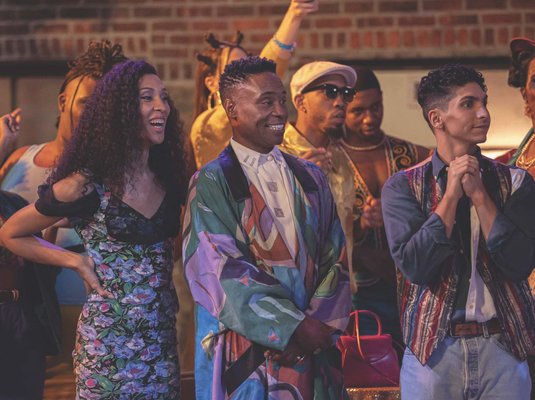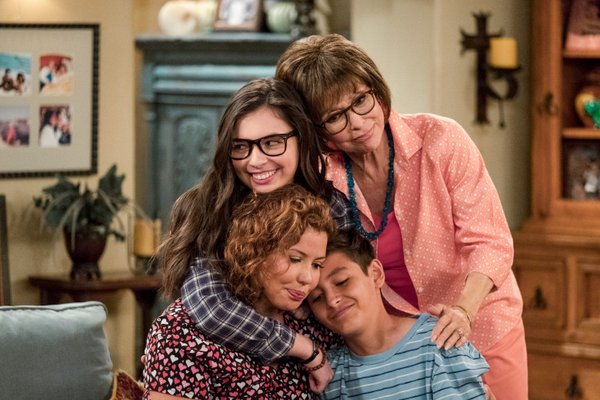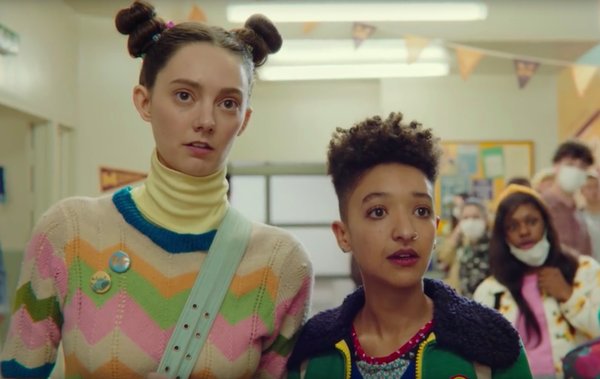The LGBTQ+ Representation We Need
Jia WeedonThis year will be my second Pride fully, and happily, out of the closet. There was a long period of time I thought I wouldn’t be able to say that. I remember seeing horror stories about coming out of the closet and not being accepted, mostly on television. I always assumed that was exactly how my story would go because I had never seen anything else.
Media and television have always played a big role in how the LGBT+ community is perceived all around the world. I can remember the first gay character I had ever seen on television, Kurt Hummel from Glee, and thinking that every gay man I would ever encounter in my life would be exactly like that. It wasn’t until much later that I realized television wasn’t the end all be all of representation.
I spent many years after that looking for, and being disappointed by, the way the LGBT+ community was represented and used as plot points to further the, often straight, main character’s journey. We saw the ultimate big bad in Pretty Little Liars, known as A, revealed as a trans woman (seemingly as a way to justifiy 8 seasons of mental abuse and murder), queerbaiting on shows like Riverdale and Supernatural fed fans breadcrumbs of queer relationships and ultimately pivoted away the couples all together, Killing Eve killed off one half of their main queer couple at the end of the series as the couple was able to get together, and the list goes on. Shows and characters like these make it difficult to step into the world as your authentic self, out of fear that those around you will minimize you to these one note characters.

However, for every bad show we can think of, there are a host of incredible, game changing shows written with LGBT+ people in mind, not just as the side characters.
FX’s Pose was groundbreaking in showing what the ballroom scene looked like in the 80s and 90s, and featured LGBT+ actors telling their own history. Through this show we were able to see queer love, honest stories about the AIDS crisis, the impact the LGBT+ community had on mainstream pop culture, and the importance of found family.
I think anyone who has ever watched Pose will agree that it immediately sticks with you. The characters, the story, the feeling of family. Found family was something I had been familiar with but had never done in practice. After watching Pose, I realized that relying on my own family wasn’t the end all be all, especially when I wasn’t sure they could be supportive of me and my life. I started leaning on my friends more, letting them see more of me for who I am. I found myself so much happier, with fewer feelings of disappointing the people I love, and feeling more secure in who I was because the people around me knew exactly who I was and loved me for it.

Netflix’s One Day at A Time addresses coming out and navigating being queer in a Latinx family. Elena Alvarez, played by Isabella Gomez, comes out as a lesbian early on in the show and her coming out story is played out throughout several episodes. We are able to see her family’s reaction, a great lesson in pronouns, and a heartfelt episode surrounding Elena changing the tradition of having a quinceañera dress and opted for a bedazzled suit instead. While the coming to terms period was difficult for her family, they ultimately accepted Elena and wanted her to be her most authentic self.
Personally, I never pictured coming out to my family, like ever. Not only did I not think it could ever go well, I had never seen it go well for any person of color either in my life or in the media. This was the first time I had ever seen coming out not be met with anger or violence. While there was a rough adjustment period, Elena’s entire family realized loving her meant accepting some things they didn’t understand, and taking the time to learn.

Netflix’s Sex Education, is features nearly an entire cast of queer characters. Fan favorite character Eric Effiong, played by Ncuti Gatwa, ascended the token black or sassy gay character stereotype. We see Eric not only being a proud gay man, but how that part of his life intersects with his faith and culture as he is of Ghanaian and Nigerian descent. Another character, Ola, was introduced in the show as a love interest for another character but ultimately, we see her journey coming to terms with being pansexual and entering a relationship with a woman. She was able to come to terms with her sexuality safely and openly as she had the support of her family.
I will be the first to say, I’ve had very few of the experiences that happen on Sex Education. My high school career was not nearly as exciting. However, I related to a lot of the feelings the characters felt. The feelings of being confused or not feeling like what I was experiencing was normal. I honestly commend the show for creating spaces for dialogue and hopefully making people ask themselves the questions they have been too afraid to ask. For me personally, watching the show definitely made me want to dive deeper into my own sexuality and see if what I had been saying about myself and my preferences were actually true.
Queer representation in the media is the first thing many queer youth see as how the world may respond to who they are. Only ever seeing the stereotypes and “unimportant side characters”, can translate to negative feelings of self worth. According to Nicole Martins of Indiana University, ““There’s this body of research and a term known as ‘symbolic annihilation,’ which is the idea that if you don’t see people like you in the media you consume, you must somehow be unimportant.”” As television and media forges forward and incredible shows and movies hit the mainstream, it is important to remember that all representation is not good representation, and it up to us to fix decades worth of misrepresentation and demand that media companies do better.
